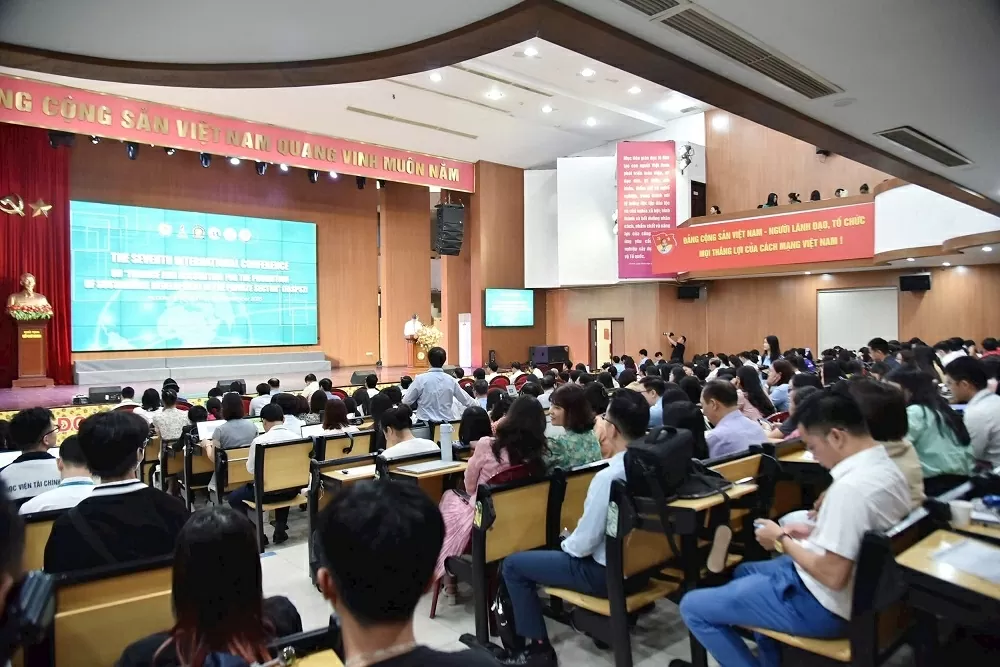 |
| Overview of the FASPS7 International Conference with the theme: "Finance - Accounting promotes rapid and sustainable development of the private economy ". (Source: Academy of Finance) |
The workshop was organized by the Academy of Finance in coordination with the University of Finance - Marketing, the University of Finance - Accounting, the University of Finance - Business Administration, the Institute of Strategy and Economic - Financial Policy, and the Academy of Development Policy.
The role of the private economic sector
Speaking at the opening of the workshop, Director of the Academy of Finance, Associate Professor, Dr. Nguyen Dao Tung, emphasized that the private economy has gradually affirmed its role and is an important driving force of the economy in the country's development process.
The 5th Central Conference of the 12th tenure issued Resolution No. 10-NQ/TW on developing the private economy into an important driving force of the socialist-oriented market economy, with specific goals and 5 groups of solutions to encourage and support the development of the private economic sector... This is an extremely important Resolution affirming the role and position of the private economic sector in the cause of building and defending the Fatherland.
From recognizing and creating opportunities for the private economy to develop at the 6th Congress to emphasizing that the private economy "really becomes an important driving force in economic development" at the 13th Congress. Timely and correct policies and guidelines have created a driving force to promote the development of the private economy and strongly affirmed its position and role in the socialist-oriented market economy. In particular, Resolution No. 68-NQ/TW on private economic development is a strong affirmation of the Party about the key role and leading important driving force of the private economic sector in the country's development process.
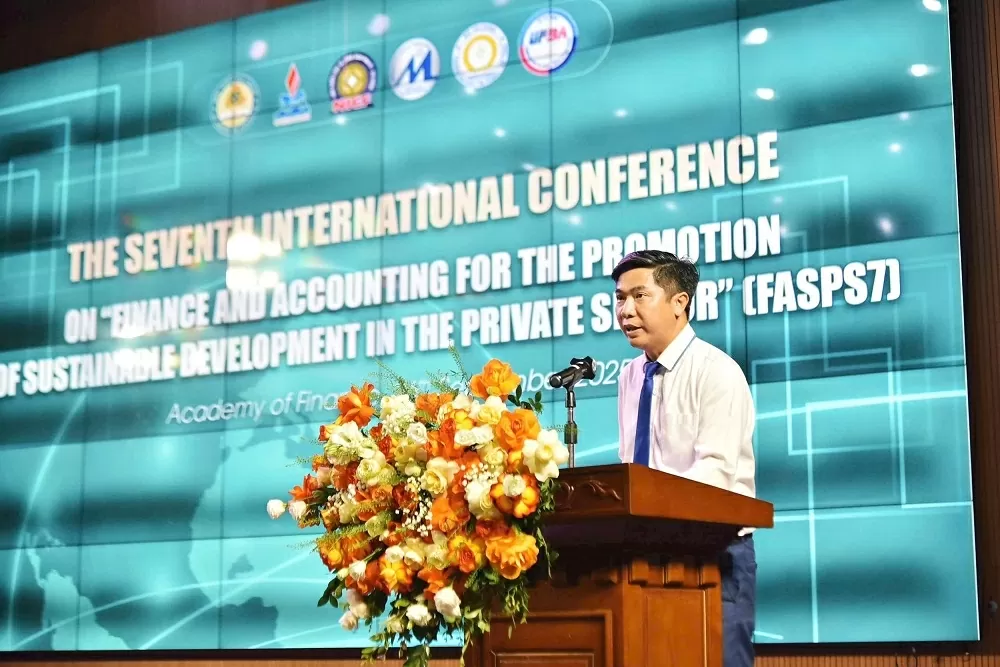 |
| Director of the Academy of Finance, Associate Professor, Dr. Nguyen Dao Tung, spoke at the conference. (Source: Academy of Finance) |
According to Associate Professor Dr. Nguyen Dao Tung, along with the Resolutions on innovation in law-making and enforcement to meet the requirements of national development in the new era; on science , technology, innovation and digital transformation; international integration marks a strong shift in national development thinking, will unlock social resources, creating new development space for Vietnam in the context of rapid and challenging changes of the times.
Currently, with more than 940,000 operating private enterprises, more than 5 million individual business households and tens of millions of workers, this sector has contributed about 50% of GDP, 30% of total budget revenue and more than 80% of employment for the whole society. Vietnam aims to have more than 2 million enterprises by 2030, equivalent to 20 enterprises per 1,000 people. Of these, at least 20 large enterprises participate in the global value chain.
The group of entrepreneurs is growing stronger and stronger, with the desire to become rich legitimately, constantly improving business capacity and corporate governance. The social responsibility of enterprises, ethics and business culture of entrepreneurs are gradually raised. It can be seen that after nearly 40 years of implementing the renovation policy, the role of the private economic sector in the Vietnamese economy is increasingly affirmed. The achievements that the private economy has achieved are the clearest evidence of the correctness and suitability of choosing the socialist-oriented market economic model, which is the basis for continuing to research and perfect economic institutions, thereby bringing Vietnam to continue to integrate and develop.
However, the private economic sector still faces many limitations and challenges in the development process. It is necessary to implement a number of solutions so that this sector can truly make important contributions to the Vietnamese economy.
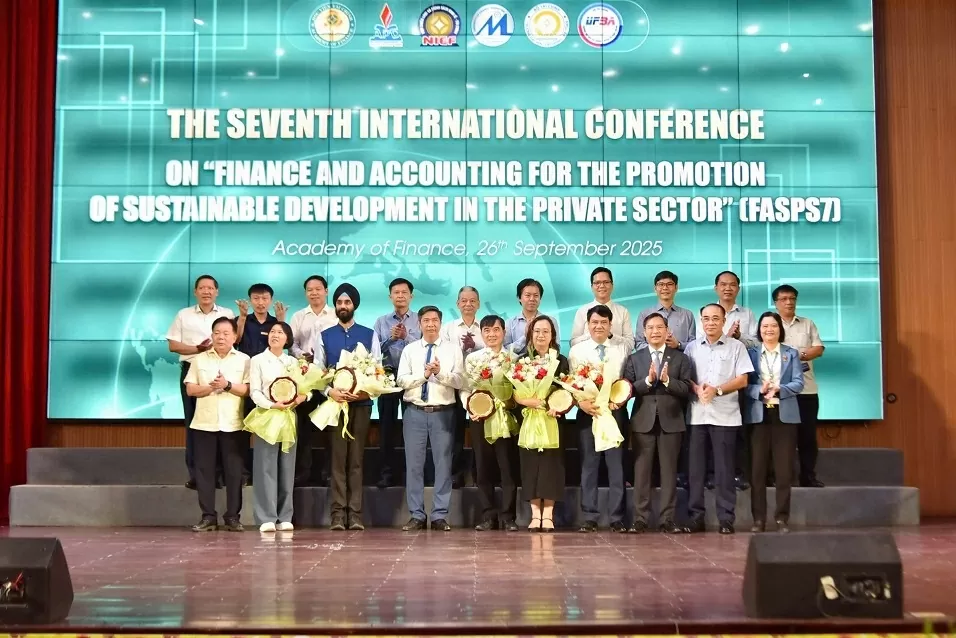 |
| Awarding prizes to scholars with outstanding articles contributing to the conference. (Source: Academy of Finance) |
Share experiences, suggest ideas
The Director of the Academy of Finance expressed his delight that this year's conference attracted the participation of many scientists from universities, academies, and research institutes at home and abroad, especially the cooperation of co-organizing schools and institutes. The conference attracted nearly 800 domestic and foreign scholars to participate in various forms on the basis of technology application and direct participation.
The organizing committee received more than 180 articles and selected and edited 168 quality articles to be published in the proceedings of this international conference.
The workshop was organized with 2 plenary sessions and 6 thematic discussion sessions, discussing and exchanging on the following contents: Accounting - auditing in private enterprise management; Corporate finance, International finance, Business administration, Tax and financial policies to support small and medium enterprises; Capital mobilization for the private sector; Application of digital technology in financial management and information transparency, Macro and micro economics for private economic development.
The research papers have high scientific content, demonstrating the diversity in approaches to private economic development. The workshop analyzed the context, opportunities and challenges in developing Vietnam's private economy, especially from the perspective of finance, accounting and management, and law in accordance with the specific orientation of Resolution No. 68-NQ/TW, focusing on sharing international experiences in applying modern financial and accounting tools, digital technology, artificial intelligence, and big data analysis to improve the competitiveness of the private sector.
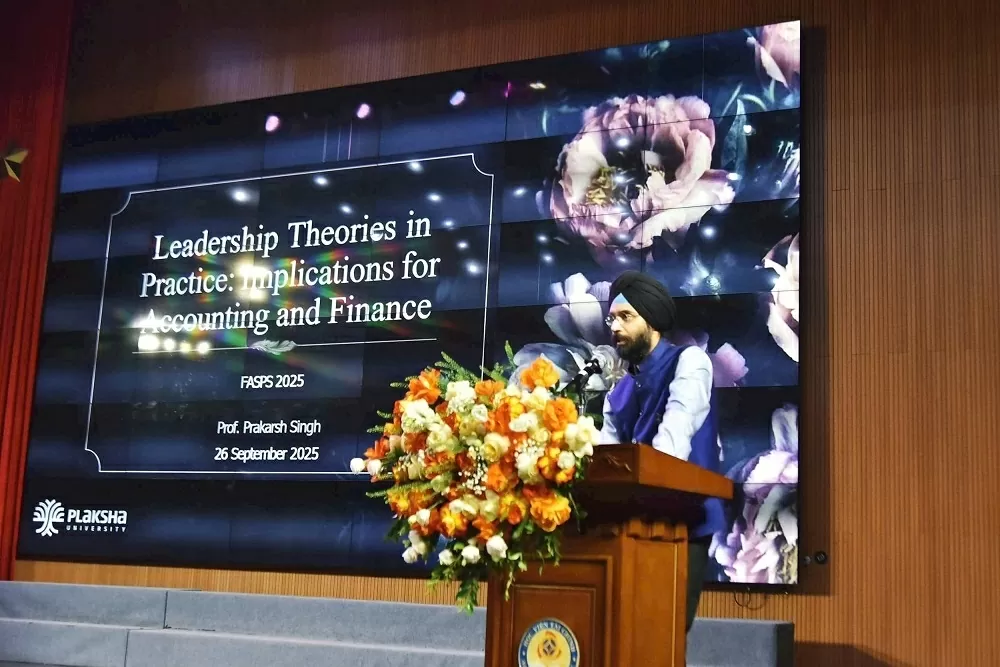 |
| Prof. Prakarsh Singh from Plaksha University (India) presented research at the conference. |
At the workshop, Prof. Prakarsh Singh from Plaksha University (India) presented research on the important relationship and practical implications of leadership theories for the field of accounting and finance. Through analyzing key leadership models such as transformational, transactional and servant leadership in the business context, Prof. Prakarsh Singh pointed out how leadership style affects the quality of financial reporting, professional ethics, risk management and investment decision-making performance.
According to Indian scholars, in an environment where pressure for transparency and compliance is high, effective leadership principles are not only a driver of innovation but also a key factor in building a culture of integrity necessary to maintain stakeholder trust.
He also proposes ways to integrate leadership theory into training and professional development programs, to equip accounting and finance professionals with the skills needed to navigate the complex challenges of the global marketplace…
At the workshop, experts proposed solutions and policy recommendations: Perfecting laws on tax, accounting, auditing, and corporate finance; Enhancing transparency of financial information of private enterprises; Promoting training of high-quality human resources in finance and accounting; Promoting access to capital, especially credit capital and international capital; Linking scientific research with corporate governance practices.
Through summarizing and evaluating the research papers, the conference's expert panel selected and awarded the 9 best papers. These papers have scientific research methods and in-depth content, suggesting many research ideas for the future.
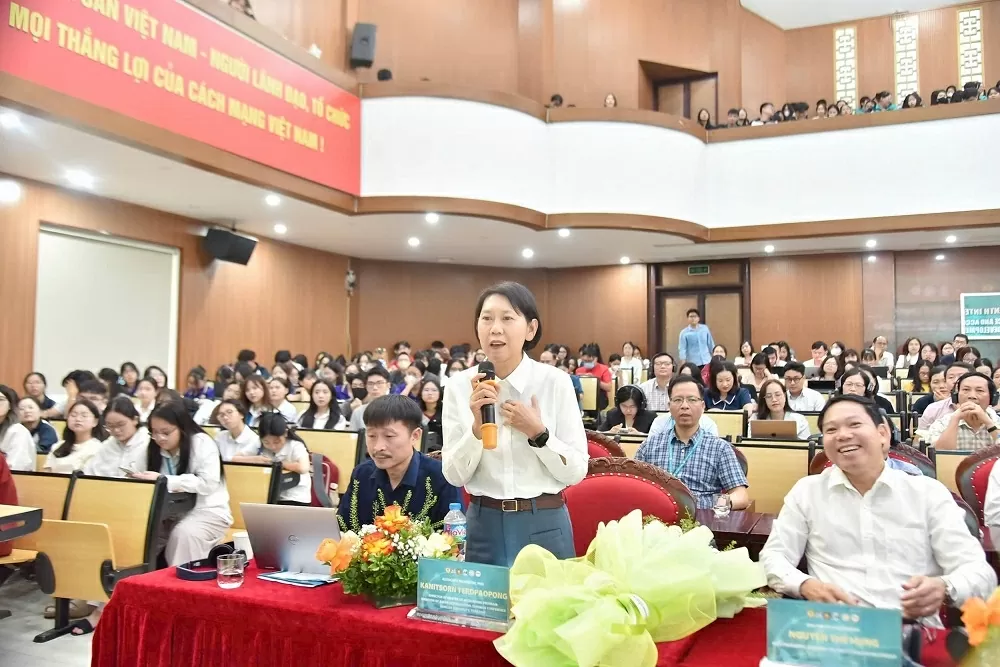 |
| Associate Professor Kanitsorn Terdpaopong from Rangsit University (Thailand) shared at the conference. (Source: Academy of Finance) |
Source: https://baoquocte.vn/khuyen-nghi-chinh-sach-tai-chinh-tao-dong-luc-cho-kinh-te-tu-nhan-phat-trien-328988.html



![[Photo] General Secretary To Lam attends the 8th Congress of the Central Public Security Party Committee](https://vphoto.vietnam.vn/thumb/1200x675/vietnam/resource/IMAGE/2025/10/4/79fadf490f674dc483794f2d955f6045)
![[Photo] Solemn opening of the 8th Congress of the Central Public Security Party Committee, term 2025-2030](https://vphoto.vietnam.vn/thumb/1200x675/vietnam/resource/IMAGE/2025/10/4/f3b00fb779f44979809441a4dac5c7df)
![[Photo] Bustling Mid-Autumn Festival at the Museum of Ethnology](https://vphoto.vietnam.vn/thumb/1200x675/vietnam/resource/IMAGE/2025/10/4/da8d5927734d4ca58e3eced14bc435a3)


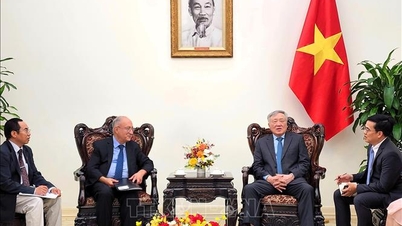





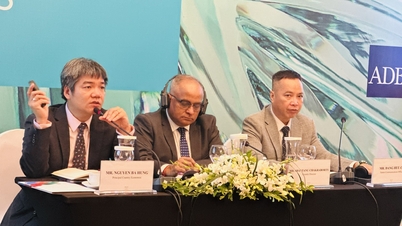
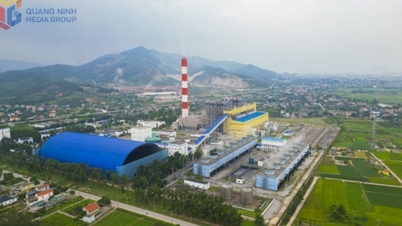










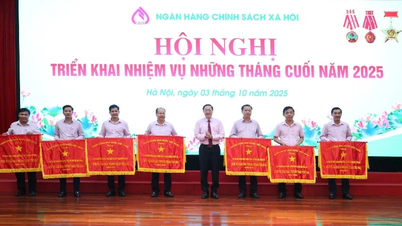




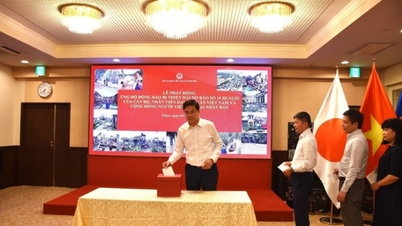
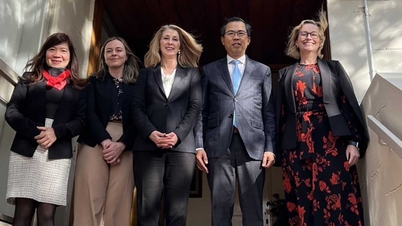

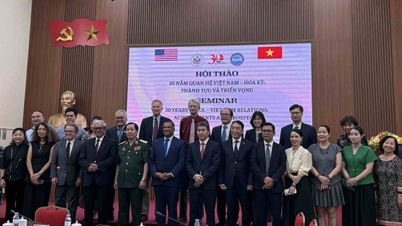
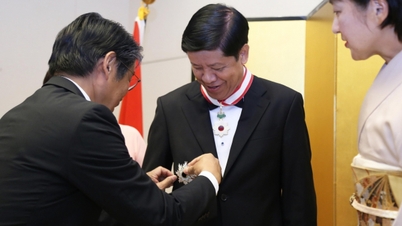
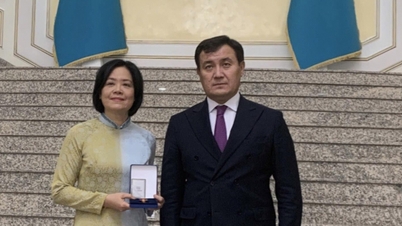


























![[VIDEO] Summary of Petrovietnam's 50th Anniversary Ceremony](https://vphoto.vietnam.vn/thumb/402x226/vietnam/resource/IMAGE/2025/10/4/abe133bdb8114793a16d4fe3e5bd0f12)
![[VIDEO] GENERAL SECRETARY TO LAM AWARDS PETROVIETNAM 8 GOLDEN WORDS: "PIONEER - EXCELLENT - SUSTAINABLE - GLOBAL"](https://vphoto.vietnam.vn/thumb/402x226/vietnam/resource/IMAGE/2025/7/23/c2fdb48863e846cfa9fb8e6ea9cf44e7)





















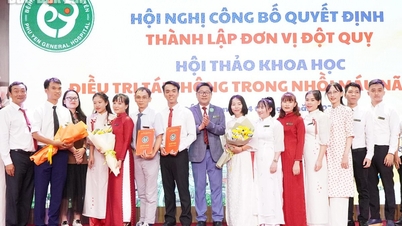
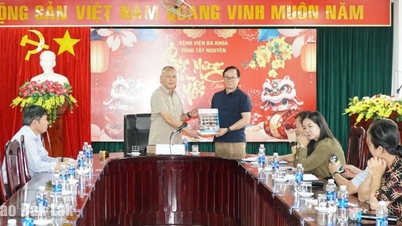








Comment (0)